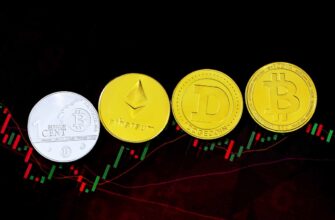## Introduction
The classification of cryptocurrency as securities represents one of the most contentious debates in digital finance. As regulators worldwide grapple with this complex issue, understanding the implications becomes crucial for investors, developers, and exchanges. This article explores the legal frameworks, real-world cases, and future outlook of cryptocurrencies deemed securities under laws like the U.S. Securities Act.
## What Qualifies as a Security?
Securities are financial instruments representing investment contracts with an expectation of profits derived from others’ efforts. Key characteristics include:
– Investment of money
– In a common enterprise
– With reasonable expectation of profits
– Primarily from the efforts of others
Regulatory bodies like the U.S. Securities and Exchange Commission (SEC) use the Howey Test—established in 1946—to determine if an asset qualifies as a security.
## The Cryptocurrency Securities Debate
Not all cryptocurrencies automatically classify as securities. The determination hinges on specific factors:
**Arguments FOR classification:**
– Many ICOs (Initial Coin Offerings) promised returns based on development teams’ work
– Token distribution models resembling traditional securities offerings
– Marketing emphasizing profit potential over utility
**Arguments AGAINST classification:**
– Decentralized networks (like Bitcoin) with no controlling entity
– Tokens serving functional purposes (e.g., blockchain access)
– Projects with fully developed networks at token launch
The SEC has clarified Bitcoin and Ethereum are **not** securities, but numerous altcoins remain under scrutiny.
## Regulatory Consequences of Security Designation
If deemed securities, cryptocurrencies face stringent requirements:
1. **Registration Mandates:** Must register with the SEC or qualify for exemptions
2. **Disclosure Obligations:** Regular financial reporting and operational transparency
3. **Exchange Compliance:** Trading platforms must become licensed broker-dealers
4. **Investor Restrictions:** Limits on who can purchase tokens (accredited investors only in some cases)
Failure to comply risks severe penalties:
– Fines exceeding $100,000 per violation
– Cease-and-desist orders
– Criminal charges for fraudulent offerings
## Landmark Regulatory Cases
### SEC vs. Ripple (XRP)
The SEC’s 2020 lawsuit alleged Ripple sold $1.3 billion in unregistered securities. A 2023 partial ruling determined XRP sales to institutions qualified as securities, but programmatic sales to retail investors did not—highlighting context-dependent assessments.
### Telegram’s TON Blockchain
Telegram paid $1.2 billion in penalties and returned investor funds after the SEC halted its token sale, ruling GRAM tokens were unregistered securities.
### Recent Enforcement Targets
Major exchanges like Coinbase and Binance face SEC lawsuits for allegedly trading unregistered securities, signaling intensified scrutiny.
## Navigating the Regulatory Landscape
### For Investors:
– Verify project compliance status through SEC EDGAR database
– Prioritize tokens with clear utility beyond speculation
– Consult legal advisors before major investments
### For Crypto Projects:
– Structure token distributions as utility-focused, not investment contracts
– Pursue regulatory clarity through initiatives like the SEC’s FinHub
– Consider decentralized governance models to reduce “efforts of others” reliance
## Future Outlook
Global regulators increasingly align on core principles:
– The EU’s MiCA framework explicitly categorizes certain tokens as securities
– Japan’s FSA applies securities laws to ICOs
– Ongoing U.S. legislative proposals (e.g., Lummis-Gillibrand bill) seek clearer crypto classifications
Expect continued evolution as regulators balance innovation with investor protection.
## Frequently Asked Questions
### What is the Howey Test?
The Howey Test is a Supreme Court-derived standard determining whether an asset qualifies as an investment contract (security). It evaluates if investors fund a venture expecting profits primarily from promoters’ efforts.
### Why does security classification matter?
It dictates legal obligations: unregistered securities sales risk severe penalties, and exchanges listing such tokens operate illegally. For investors, it affects asset accessibility and protection rights.
### Which cryptocurrencies are considered securities?
The SEC has explicitly named over 60 tokens as securities in enforcement actions, including SOL, ADA, MATIC, and SAND. Bitcoin and Ethereum are currently not classified as securities.
### How can a crypto project avoid security status?
Strategies include:
– Launching functional networks before token sales
– Avoiding profit promises in marketing
– Implementing decentralized governance
– Structuring tokens for utility (e.g., platform access) rather than investment
### What penalties exist for non-compliance?
Violations may incur:
– Civil penalties up to $207,183 per violation (2023 rates)
– Disgorgement of all fundraising proceeds
– Operational shutdowns
– Criminal charges for fraudulent activities








